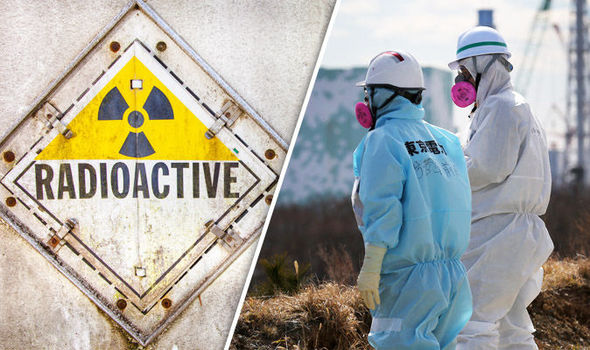Japan could release cancer causing RADIOACTIVE water into the sea in nuclear clean-up

CANCER fears have been sparked in Japan after releasing radioactive water into the sea was suggested as part of a major nuclear clean-up.
Officials are becoming increasingly concerned by the huge levels of irradiated water building up at the Fukushima nuclear facility which needs to be disposed with.
Currently thousands of tanks are being used to hold the water, which contains a nuclear material known as Tritium which has been linked to cancer.
But scientists say they are fast running out of space, with some 300 tons needing to be pumped into the plant every day just to keep its reactors cool.
The Fukushima facility was irreparably damaged in 2011 when a 9.0 magnitude earthquake sent a tsunami thundering into Japan's north-east coast.
It was the worst nuclear disaster since the catastrophe at Chernobyl, and the two are the only events ever to be given the most severe grade, seven, by International Nuclear and Radiological Event Scale (INES).
More than 18,000 people died in the disaster which triggered a nuclear nightmare as the nuclear Fukushima Daichi plant went into meltdown.
Deadly radiation spewed from the plant which forced more than 450,000 people to be evacuated.
And five years after the cataclysmic event, thousands still cannot return home.
The clean-up and rebuilding process has been fraught with difficulties, mostly centred on the unstable nuclear reactor at the now abandoned plant.
All of Japan's nuclear power plants were ordered offline in the wake of the disaster, with only a few restarted since.
But the issue remains of how to handle the radioactive material lingering at the affected site, which is nearly impossible to remove due to the vast quantities of water it exists in.
Within this water is the radioactive substance tritium.
Vast tanks surround the plant, which have been used to cleanse hundreds of tons of water from other radiative elements cesium and strontium.
But to filter the water of tritium requires a laboratory, which would be costly owing to the volume of water needed to be cleaned.
Tritium penetrates the soft tissues and organs of the body, and is linked to cancer and other sicknesses.
Children are the most susceptible to radiation-linked diseases.
But there are now calls for the matter to be released into the Pacific Ocean, with Japanese politicians set to vote on the matter.
Shunichi Tanaka, chairman of the Nuclear Regulation Authority, favours that option.
He previously claimed what will be released from Fukishima will be below the global standard for tritium in water.
He said: "Tritium is so weak in its radioactivity it won't penetrate plastic wrapping."
Supporters argue the amount stored in the contaminated water equates to 3.4 peta becquerels — 34 with 14 zeros after it — or 57 ml.
But Japan's fisheries industry is staunchly opposed to this plan, claiming releasing the radioactive water into the sea could devastate the industry.
Robert Daguillard, a spokesman for the U.S. Environmental Protection Agency, also warned against the dangers of releasing the toxic water.
He said: "Any exposure to tritium radiation could pose some health risk.
"This risk increases with prolonged exposure, and health risks include increased occurrence of cancer."
Политика конфиденциальности | Правила пользования сайтом










